New Fengdu by nightWhen my wife and I traveled down the Yangtze Valley and Three Gorges Reservoir last week, we were surprised by what we saw in New Fengdu. The town of 100,000, which was built eight years ago as a resettlement colony for the reservoir oustees, looks well-planned, hospitable, and prosperous. People gather in the park for their morning exercises, go about their business, and populate the beer gardens in the evening. Sure, we learned, the displaced people had not received sufficient compensation to pay for their new apartments. But New Fengdu has ample tourism and mineral resources, and over time, the inhabitants were able to join China's economic growth model and make up for their losses.

Date: Friday, June 12, 2009 - 15:27
World Bank President Zoellick with a FriendWorld BankA new report entitled, Directions in Hydropower, summarizes the World Bank’s current approach to hydropower projects. The report says that the Bank will scale up its support for hydropower, and claims that it will respect the triple bottom line of social, environmental and economic sustainability in doing so. If we look at the World Bank’s report and practice in more detail, the social and environmental bottom lines still mainly seem to be meant for public consumption.

Date: Friday, May 29, 2009 - 14:55
See no evil, hear no evil, speak no evilIn a major departure from the past, World Bank President James Wolfensohn in 1996 identified corruption as the “cancer” of development. Wolfensohn promised to take vigorous action to combat bribery, and launched various strategies and action plans. A new book argues that behind the rhetoric of good governance, nothing has changed. In The World Bank and the Gods of Lending, the Bank insider and corruption fighter Steve Berkman explains in stunning detail how government officials milk billions of dollars from Bank loans and credits every year. The World Bank management, still mainly concerned with pushing money out the door, meanwhile looks the other way.
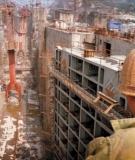
Date: Thursday, May 7, 2009 - 18:01
Three Gorges Dam constructionChris De BodeOn his eight-day visit to China, Nepal’s Prime Minister Prachanda planned to visit the Three Gorges Dam this week. He would have followed in the footsteps of dignitaries from South Africa, Congo, Switzerland and many other countries. China is aggressively marketing the Three Gorges Project to the rest of the world. As it happened, Nepal’s Prime Minister resigned just before leaving for China. Yet the propaganda efforts around the Yangtze reservoir beg the question: Is the Three Gorges Dam still China’s model for the world?

Date: Friday, May 1, 2009 - 12:03
Che Guevara on bikeBarack Obama has proposed to invest $150 billion in renewable energy and energy efficiency over the next ten years. He need look no further than La Havana for inspiration. Cuba has successfully greened its energy sector over the last few years, and is now exporting its energy revolution. Will we soon benefit from Cuban expertise in cleaning up the US energy sector?
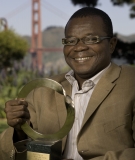
Date: Monday, April 20, 2009 - 09:39
Marc Ona with the Goldman PrizeMarc Ona Essangui, one of our most inspiring partners from Africa, will receive the Goldman Environmental Prize in San Francisco today. The Prize recognizes Marc’s personal courage and perseverance, and gives a boost to our network.
Date: Thursday, April 9, 2009 - 17:32
The Hydropower Sustainability Assessment Forum (HSAF), a task force led by the dam industry, is currently preparing a new protocol to assess the sustainability of hydropower projects. A recent consultation found that the HSAF protocol will be “toothless” unless it incorporates clear minimum standards. The Forum says that it is seeking “broad endorsement” for its new assessment tool. So how did it respond to the key finding of its consultation?
Date: Sunday, March 22, 2009 - 21:48
I did not feel well through much of the World Water Forum,
which concluded in Istanbul today.
To be sure, there are many things that can make you feel sick at the Forum
after a few days: The omnipresence of 8,000 police men and women – in the
meeting halls, the corridors and even the toilets. The deportation of my two
colleagues for a simple banner drop. Or the constant talk of corporate managers
and bureaucrats about the needs of the poor for large dams and private water
supply.
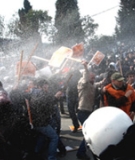
Date: Thursday, March 19, 2009 - 07:17
Bridging the global water divide, courtesy of the Turkish police
Once again, the discussions at this year’s World Water Forum have turned around the question of how best to supply water to the poor. Will large dams and centralized irrigation systems be most effective in bridging the global water divide? Or are soft, decentralized approaches such as rainwater harvesting and muscle-powered treadle pumps a better way to reduce water poverty?
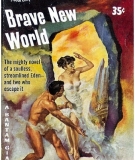
Date: Tuesday, March 3, 2009 - 15:39
There was a time when we were all expected to follow the law. There was a time when we had to respect clear social and environmental standards if we wanted to build a dam with international funding. These days may soon be over if the hydropower industry has its way. A new initiative called the Hydropower Sustainability Assessment Forum puts social and environmental rights and standards at risk.
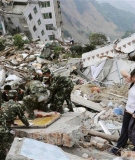
Date: Wednesday, February 4, 2009 - 17:56
Sichuan earthquake of May 2008mike at bloggin-ads.comThe devastating earthquake in Sichuan, which took at least 69,000 lives in May 2008, may have been unleashed by the huge Zipingpu Dam. New scientific evidence suggests that the filling of the Zipingpu reservoir may have activated a dormant fault line near the dam site. This is all the more worrisome because the Chinese government plans to shift the center of its dam-building efforts into seismically active regions.

Date: Wednesday, January 21, 2009 - 13:00
Pete Seeger and Bruce Springsteen singing “This Land Is Your Land” on the steps of the Lincoln Memorial was one of the highlights of the presidential inauguration this week. The traditional folk song deeply moved me, like millions of other people. Yet it is also illustrates the founding lie of this country.
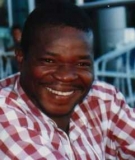
Date: Friday, January 16, 2009 - 10:12
Marc Ona EssanguiAbundant natural resources make Gabon one of Africa’s richest nations. The country’s wealth fills the pockets of a small clique, while the people live in misery. Gabon’s strong man Omar Bongo recently imprisoned five civil society partners of International Rivers to stifle calls for change.

Date: Tuesday, December 23, 2008 - 17:05
Peter at the Berne DeclarationOne of my favorite movies is The Big Lebowski. In this film by the Coen brothers, Jeff “the Dude” Lebowski gets into serious trouble because some mobsters confuse him with a namesake. Little did I suspect that I would one day face namesake troubles of my own.
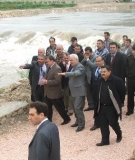
Date: Monday, December 22, 2008 - 06:18
You have to hand it to the European governments. They really try to avoid open conflicts with their friends. Even as it becomes clear that Turkey will not fulfill the social and environmental conditions under which it accepted export credits for the Ilisu Dam from Austria, Germany and Switzerland, the funders are looking for an exit strategy which allows all parties to save face. Yet the Turkish authorities do not seem to be interested in a diplomatic solution. They have started a campaign of repression and expropriation against the affected communities. If the conflict over Ilisu continues at this pace, the funders may soon be beyond face-saving.
Date: Tuesday, December 16, 2008 - 16:08
We live in times of unprecedented economic and environmental crisis, and historic opportunity. A Green New Deal can rebalance our economy and address the looming environmental collapse at the same time. An editorial in the latest issue of World Rivers Review, our flagship publication, presents a few concrete suggestions.
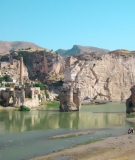
Date: Thursday, December 11, 2008 - 09:26
The ancient town of Hasankeyf would be flooded by the Ilisu DampeevishsoulThe Austrian foreign minister just announced that his country will pull out of the Ilisu Dam in Turkey. Even though the foreign minister is not in charge of his country’s export credit agency, this most likely spells the end of the European funding for the ill-fated project. The Austrian, German and Swiss export credit agencies will meet in Vienna tomorrow to coordinate their positions. If they follow through on the minister’s announcement, it will be the first time export credit agencies are abandoning a destructive dam project for social and environmental reasons. We hope the Ilisu experience will cause international dam financiers to be more cautious in the future. At the same time, we will try to ensure that other funders do not take up the tab.
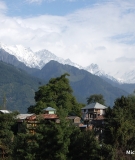
Date: Tuesday, December 9, 2008 - 16:34
Jagatsukh village, IndiaMichelle Arevalo, IAPUntil recently life in Jagatsukh, a village nestled in the Beas Valley among Himalayan peaks, followed its traditional course. Apple plantations and local tourism brought modest prosperity to many inhabitants. The irrigation channels were well maintained, and the sturdy houses withstood the region’s harsh climate. When we visited, the local farmers were happy to share their stories over glasses of hot chai with us. Jagatsukh’s culture and economic development are now being sacrificed for the glitzy middle class consumption which is on display in the nearby holiday resort of Manali. With support from the World Bank Group, the Norwegian government and the CDM, private investors are currently building the Allain Duhangan Hydropower Project on village lands. The project has brought 2,000 workers, illegal logging, serious accidents and conflict to Jagatsukh. The dam will divert the creeks on which the farmers have so far depended for their livelihoods. But since the villagers will not be physically displaced, they are falling through the cracks of the World Bank’s safeguard policies.
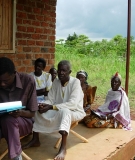
Date: Wednesday, December 3, 2008 - 18:27
Bujagali Affected Community
The World Bank has presented the Bujagali Dam on the Nile in Uganda as a model of its promotion of hydropower in Africa for almost ten years. The communities affected by the project don’t share the Bank’s optimism. When I visited their resettlement sites six years ago, affected people almost beat me up because they mistook me for the project’s manager, with whom I share my first name.
A new report by the Inspection Panel finds that the World Bank has still not learned from its past mistakes in the Bujagali Project. Because of wishful thinking regarding the dam’s risks and benefits, the Bank’s investigative body finds, the project may well fail to fulfill the “broad objective of sustainable development and poverty reduction embodied in Bank policy”. The report will be discussed by the Bank’s Board of Directors tomorrow.
Date: Wednesday, November 26, 2008 - 17:05
The indigenous Ixcan communities are strongly opposing the proposed Xalala Dam in Guatemala. Partly due to their opposition, private funding for the dam has now dried up. Will the World Bank and the IDB bail the project out, or will they realize that the time for change has also come for them?
Date: Monday, November 24, 2008 - 08:12
So Barack Obama picked Timothy Geithner as his future Treasury Secretary today. What is the new secretary’s track record, and what does his appointment tell us about the emerging course of the Obama administration?
Date: Thursday, November 20, 2008 - 17:05
Barack Obama is considering appointing Larry Summers as his Treasury Secretary. Summers, a former World Bank chief economist and Treasury Secretary under Bill Clinton, shot to fame with his suggestions that Africa is under-polluted, and that women are genetically less qualified to become scientists. A debate is raging in the blogosphere whether these cynical memos disqualify Summers from becoming Treasury Secretary. The real question is what policies Summers has promoted in his long career.

Date: Thursday, November 6, 2008 - 17:27
Protest against submergence in the Narmada ValleyFor decades, the Sardar Sarovar Dam on India’s Narmada River has been a powerful symbol of what is going wrong with large dam projects. A new independent review by a prestigious research institute shows that the project’s benefits have not been realized, while the social, environmental and financial costs are even more serious than expected. The dam authorities and the World Bank have a responsibility to clean up the mess which they have created.
Date: Monday, October 27, 2008 - 16:16
The European Parliament last week awarded the Sakharov Prize for Freedom of Thought, Europe’s most prestigious human rights award, to the Chinese human rights activist Hu Jia. The new generation of civil society activists whom Hu Jia represents is China’s best hope for addressing the country’s enormous social and environmental problems. The award’s condemnation by the Chinese government is a sign of weakness and fear.

Date: Monday, October 27, 2008 - 13:59
A previous post on this blog claimed that John Briscoe had retired from the World Bank. This is not correct. John will retire soon, but is still the Bank's Country Director for Brazil. Read John Briscoe's comment on our blog post and a brief rejoinder. (The picture on the left is from a presentation by John Briscoe on the World Bank and infrastructure.)

Date: Thursday, October 23, 2008 - 17:26
Anonymous CrusaderA high-level independent evaluation found two years ago that the World Bank’s research agenda was often politicized, and that “technically flawed and in some cases strong policy positions have been supported by such (non) evidence”. A new book, Indirect Economic Impacts of Dams, is the latest example of such politicized research. The book, astonishingly, only considers the benefits and ignores the costs of dams. It is the parting shot of the Bank’s main large dam crusader, John Briscoe.
Date: Thursday, October 9, 2008 - 13:53
According to a report soon to be released by Oil Change International, the World Bank Group increased its lending for coal by an astonishing 256% in 2008. Lending for large hydropower projects increased from $751 million to $1,007 million. Support for renewable energy stagnated at a low level.

Date: Wednesday, October 8, 2008 - 10:59
By sending an Environmental Failure Notice to the Turkish authorities, the governments of Germany, Austria and Switzerland have started the process of withdrawing their financial support for the Ilisu Project in Turkey. This is a fantastic success of the European anti-Ilisu campaigners. While the German government has pushed for this unprecedented step, the attitude of the Austrian and Swiss governments is ambiguous. The next two months will decide over the fate of the project.
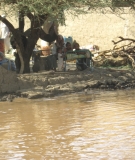
Date: Thursday, October 2, 2008 - 17:20
Flooded home at Merowe Dam village.The Sudanese government has closed the gates of the Merowe Dam in order to flood out thousands of people who have so far resisted displacement from their villages in the Nile Valley. The affected people are holding out, but desperately need our support. The credibility of the Chinese, German and French companies which are involved in the project is on the line.
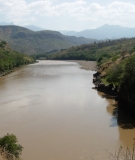
Date: Wednesday, September 24, 2008 - 16:51
Last night, I got a phone call from Henry Paulson. With the Wall Street bail-out still pending in Congress, the Treasury Secretary urged me to quickly send some cash to rescue the imprudent Wall Street banks. For our family, Paulson explained, the bail-out bill would amount to exactly $7,000. If we wanted to pay up for all members of International Rivers in the US, the figure would raise to $1.2 million. Together we could just pay the salary and bonus of Jamie Dimon, JP Morgan Chase's CEO, for one month, and give the bank some breathing space to offload their bad debt to the taxpayers.




